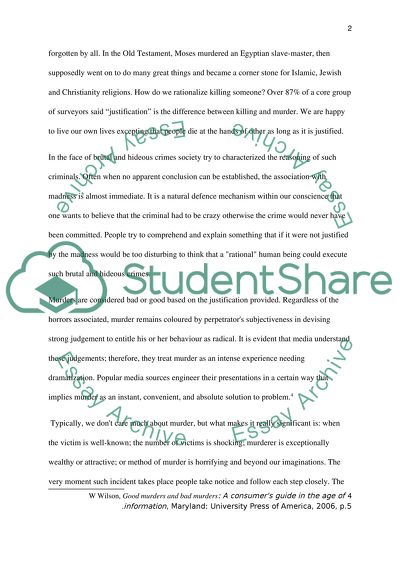Cite this document
(“Why Do We Glamorize Murder in the Media Essay Example | Topics and Well Written Essays - 1250 words”, n.d.)
Retrieved from https://studentshare.org/journalism-communication/1443532-why-do-we-glamorize-murder-in-the-media
Retrieved from https://studentshare.org/journalism-communication/1443532-why-do-we-glamorize-murder-in-the-media
(Why Do We Glamorize Murder in the Media Essay Example | Topics and Well Written Essays - 1250 Words)
https://studentshare.org/journalism-communication/1443532-why-do-we-glamorize-murder-in-the-media.
https://studentshare.org/journalism-communication/1443532-why-do-we-glamorize-murder-in-the-media.
“Why Do We Glamorize Murder in the Media Essay Example | Topics and Well Written Essays - 1250 Words”, n.d. https://studentshare.org/journalism-communication/1443532-why-do-we-glamorize-murder-in-the-media.


